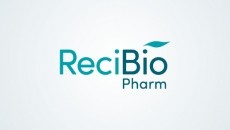Needle-free injection device a winner
traditional needle and syringe after winning an award at the 2007
Medical Futures Innovation Awards.
Oxford-based Glide Pharma was named the Best Business winner for its unique Glide Solid Dose Injector (SDI) system, which, according to its makers, would overcome the obstacles facing the traditional needle and syringe.
The delivery device, developed in collaboration with medical device specialists Brightworks and Bespak, works by injecting a solid reformulation of already marketed drugs into the skin using a spring mechanism to push the drug into the underlying tissue, where the drug dissolves and is released into the bloodstream.
The company is currently preparing for clinical studies using a solid formulation of octreotide, currently marketed as Sandostatin by Novartis for the treatment of acromegaly , which is characterised by the excess production of human growth hormone.
Glide Pharma, formerly Caretek Medical, is also working on sumatriptan to treat migraine.
Beside those drugs already in development, the drug possibilities are endless for the system, Glide Pharma chief executive Dr Charles Potter told in-PharmaTechnologist.com. Everything from vaccines to therapeutic proteins could be reformulated for the system, which had the advantage of using solid formulations, a more stable form which would not require refrigeration like the liquid counterparts, Potter said.
More than a third of drugs listed in the US Pharmacopoeia and about 50 per cent of new drug molecules are insoluble, making solid formulations more favourable than liquid formulations.
Smaller than a grain of rice, the solid formulation can also be adjusted to provide immediate or controlled release of the drug.
The needle-free system also removes the possibility for needle-stick injuries, disposing problems and the phobia linked to syringes.
Potter said the key advantage was the easy-to-use mechanism of the device and the take-home option that it provided, which would be especially useful for drugs such as insulin.
The area of needle-free injection is a growing one as pharmaceutical companies act to counter the obstacles the traditional needle and syringe face and aim to get a slice of the needle-free injectable market pie, which is set to hit $3bn (€2.3bn) by 2010.
US-based Bioject Medical Technologies introduced Biojector2000 in 1993, which has been developed to force liquid medication at a high speed through a tiny orifice held against the skin, creating a fine stream of high pressure fluid penetrating the skin and depositing medication in the tissue beneath.
Bespak has also developed a needle-free subcutaneous delivery technology which fires the liquid treatment into the fatty region under the skin.
Meanwhile a team at the University of California has developed a novel injector system that minimises the depth of penetration by using pulsed micro-jets at very high speeds and very small volumes.
The Medical Futures Awards are widely regarded as the healthcare industry's Oscars and this year's competition attracted over 500 entries.
The world-class panel of judges were looking for ideas that "have the potential to change people's lives".















